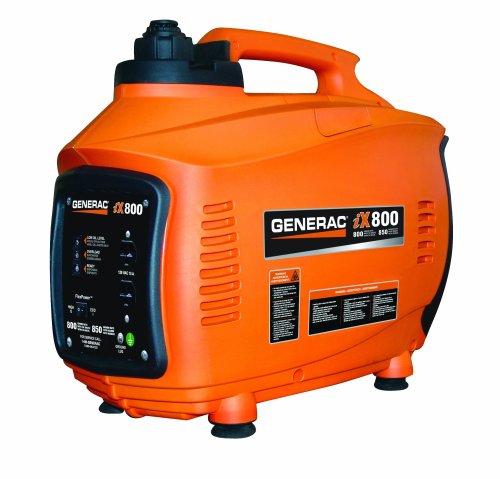When looking for a home generator to supply backup power during an electrical outage you would typically focus on either a portable model or a standby home generator. The price range is extensive and the number of models and fuel types can be overwhelming.
A fairly recent addition to the portable line is called an inverter generator. This should not be confused with a stand alone inverter, which is an electrical device that converts 12-volt power into 120-volt power. A typical inverter runs off a car battery or a deep-cycle battery that you buy specifically to power the inverter. It is easy to operate, but has limited uses for most residential emergency situations.
On the other hand, the inverter generator is considerably more powerful and adaptable. It utilizes a different type of alternator than standard portables to generate AC power. The raw power produced is converted from DC to AC power by a digital inverter module.
Generally, they are more fuel efficient than standard portable generators and significantly more quiet. They are usually more expensive and are used primarily for recreational purposes, such as with RV appliances or tailgating activities. Recently, however, extraordinary improvements have been made that are now getting the attention of serious buyers.
Depending on total wattage, an inverter generator can be used for many emergency situations during a home power outage. For example, if you are primarily concerned about keeping your refrigerator functioning during the utility power downtime, an inverter generator can do the trick. Keep in mind, however, that the more juice you require the more strain you place on the unit.
Yamaha introduced a new model for 2010 that is a 2000 watt high-current inverter generator. It is specifically designed to handle the sudden heavy surge requirements inherent in some equipment and appliances. It has even been tested successfully by starting a 13,500 BTU air unit, which until now always required a more expensive and higher watt generator.
As technology has improved, the cost of portable electricity has become more readily accessible. However, inverter generators do carry a stiffer price tag than comparable portables. But, their quiet operation and fuel efficiency can make them perfect for use with sensitive electronic equipment such as computers, audiovisual, and medical equipment.
So, why would someone buy an inverter generator rather a standard portable generator when the price would be higher? To answer this intelligently it is helpful to have a basic understanding about the current flow of electrical power.
Computers and power-sensitive testing equipment require what is referred to as clean power, which is electrical current that is consistent and has a stable sine wave or signal. This is similar to a steady, unwavering hum.
If the lights or other basic appliances in your home were being powered by a generator and there was a fluctuation in the AC power, you would probably see the lights flicker, which normally is no problem. But, if your computer was being powered by a generator and the voltage fluctuated, chances are the computer would shut down or at the least distort the program in which you were working.
To overcome this problem, engineers developed a revolutionary type of inverter technology that takes the raw power produced by the generator and passes it through a special microprocessor. This lets you operate a computer or similarly sensitive equipment from a far off location and have less probability of interrupted service or damage.
Also, inverter generator engines can run with variable speed without internal brushes. Powerful rare earth neodymium magnets make this possible. Of course, rare earth usage contributes significantly to the higher cost of these units.
Nevertheless, make sure you evaluate the pros and cons of inverter generators during your search for reliable backup during a home emergency power outage.














